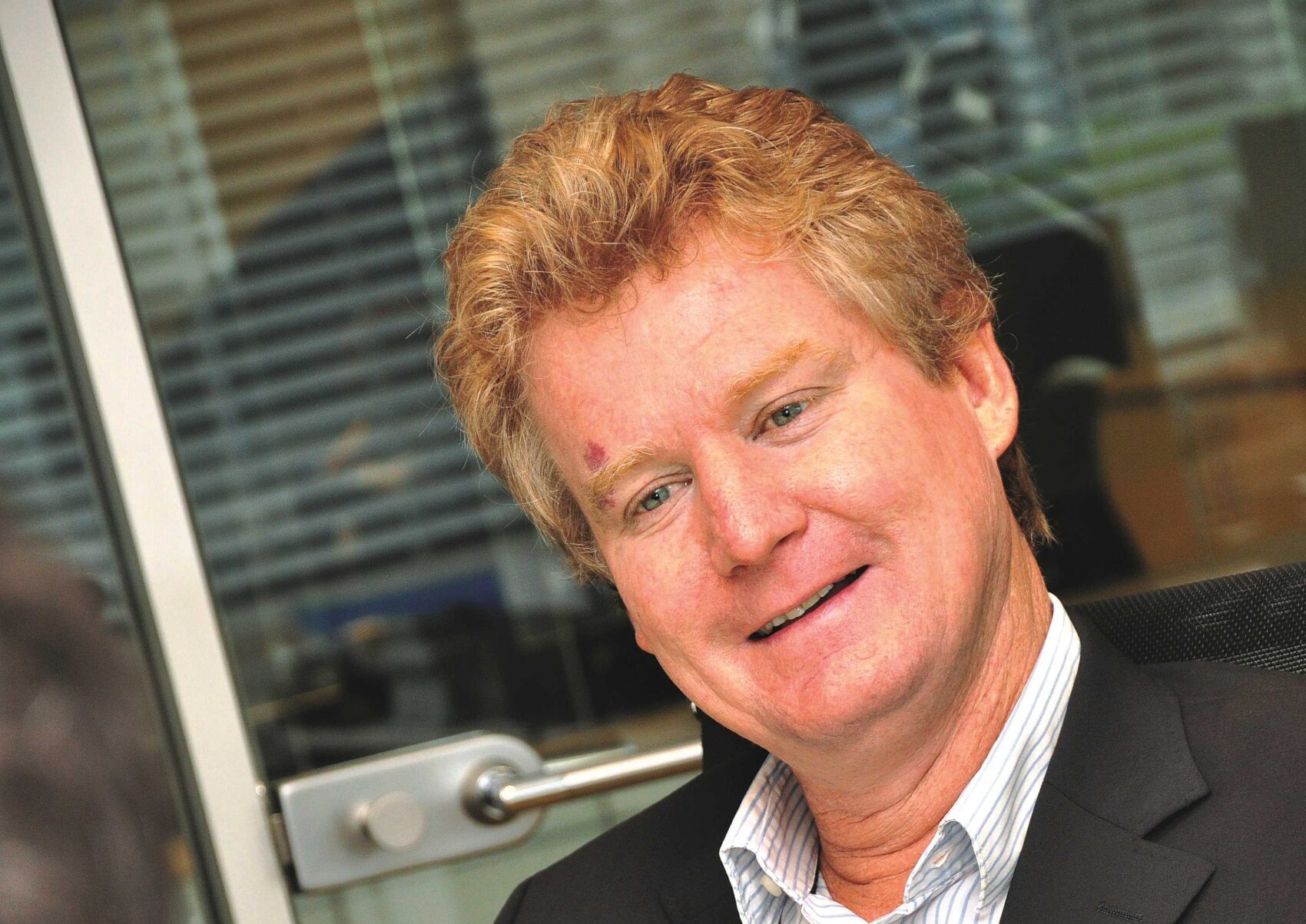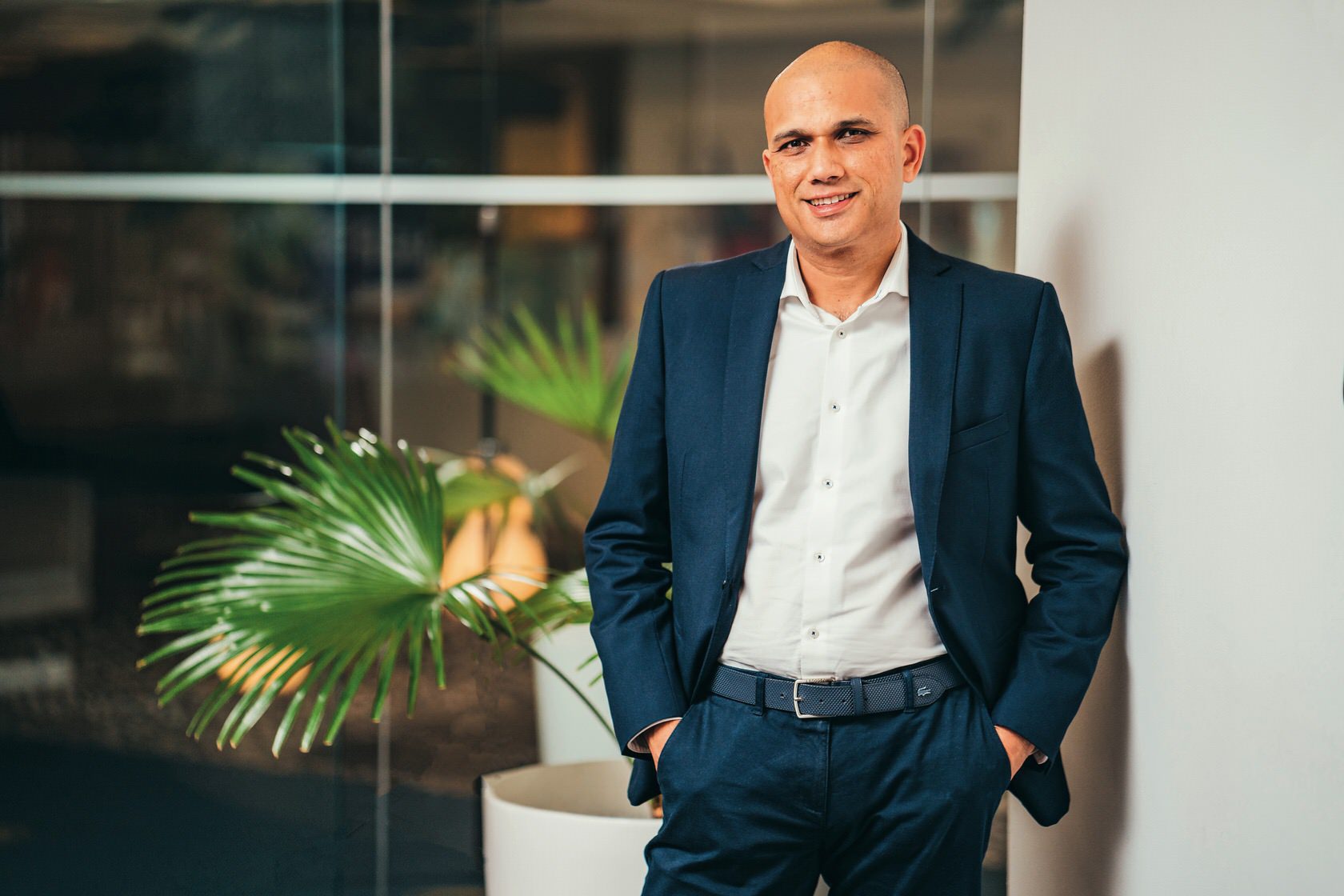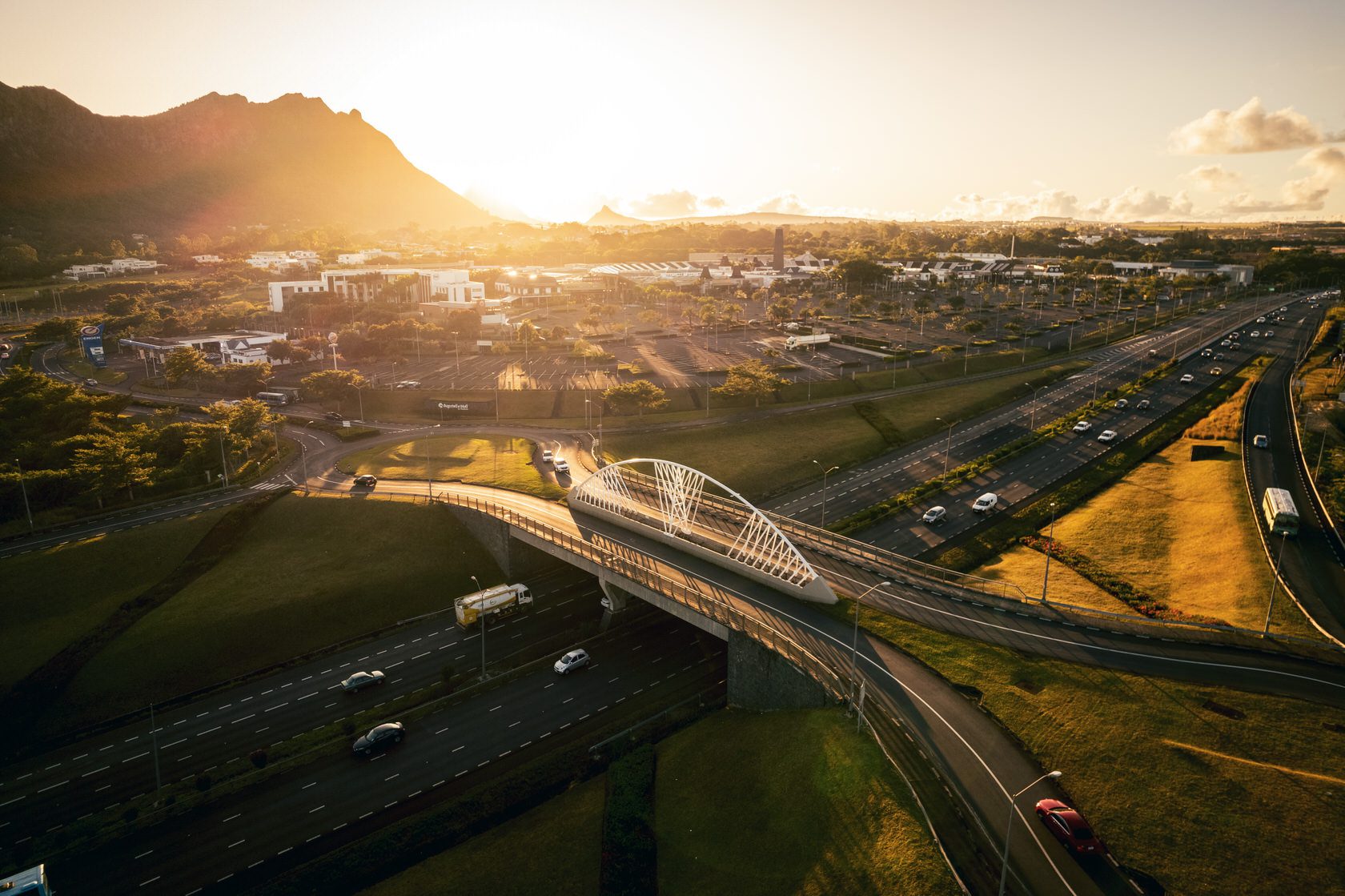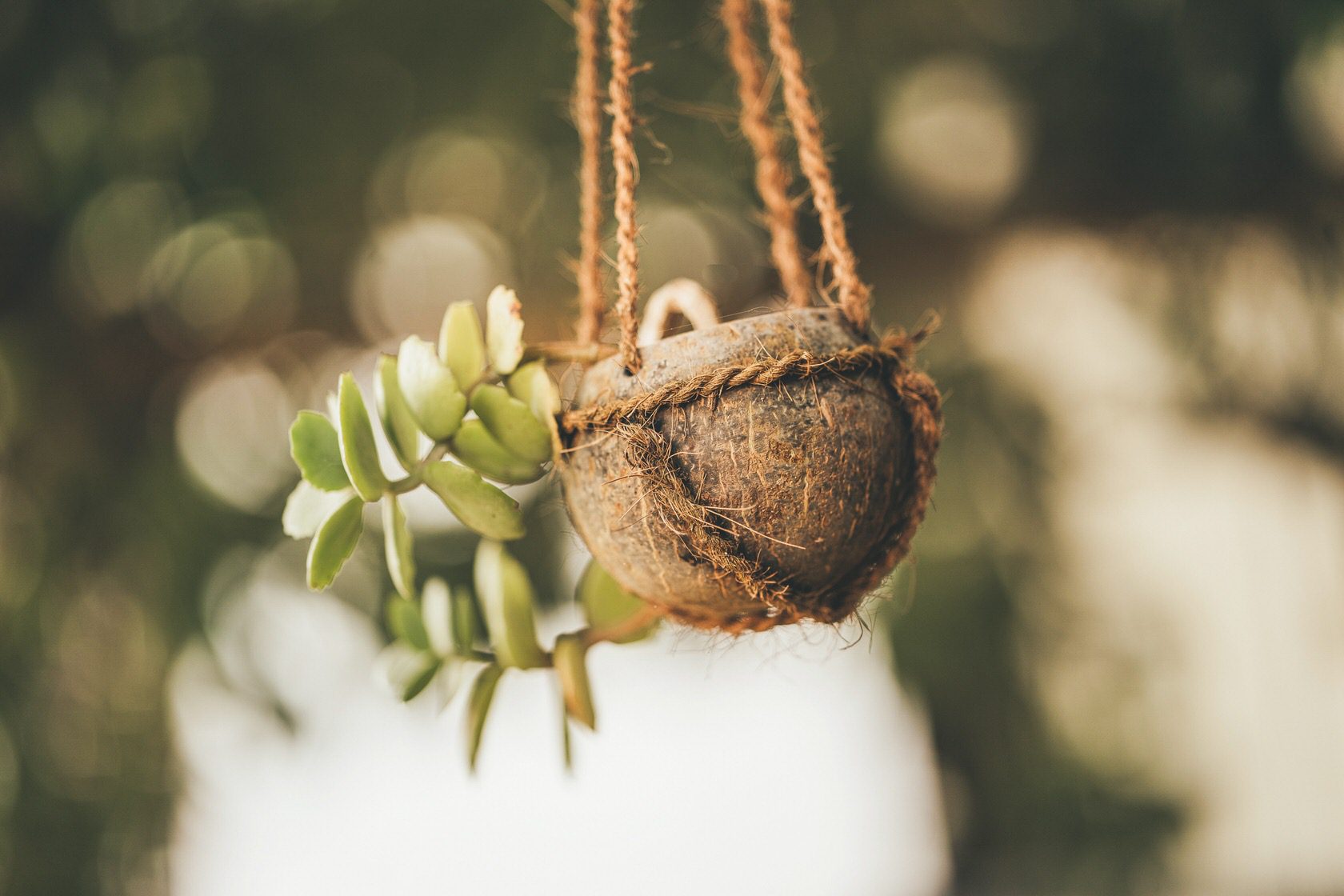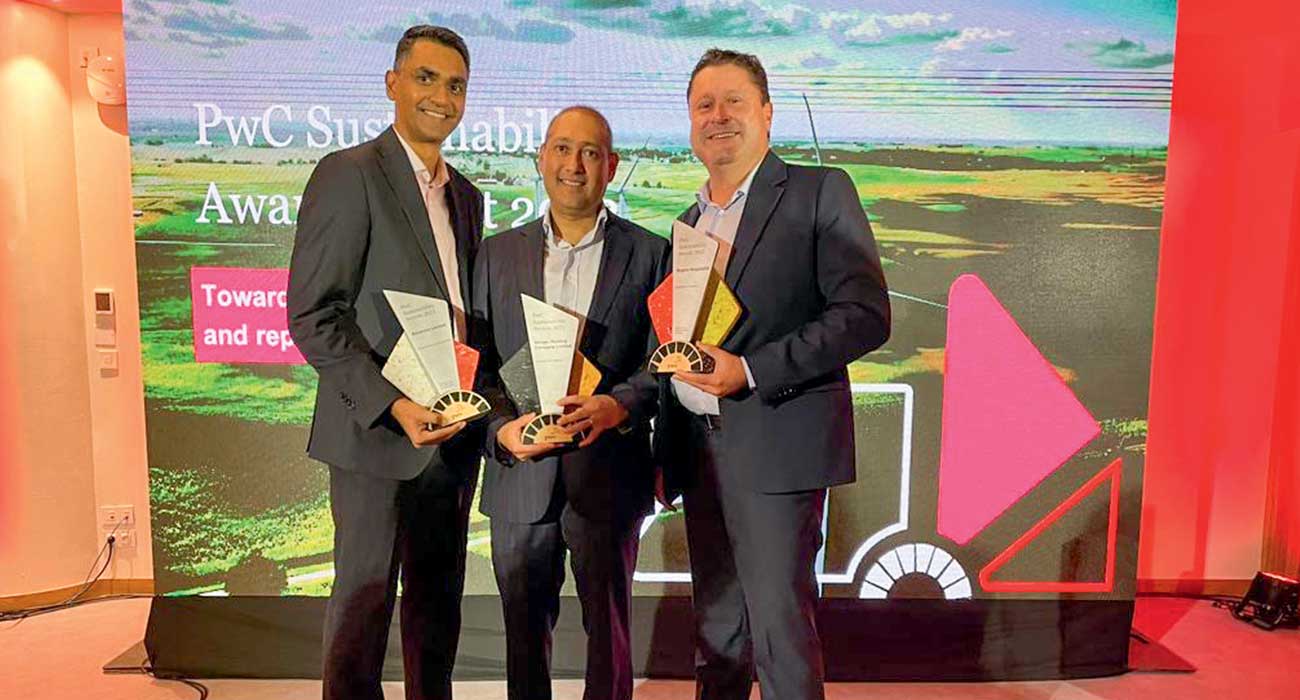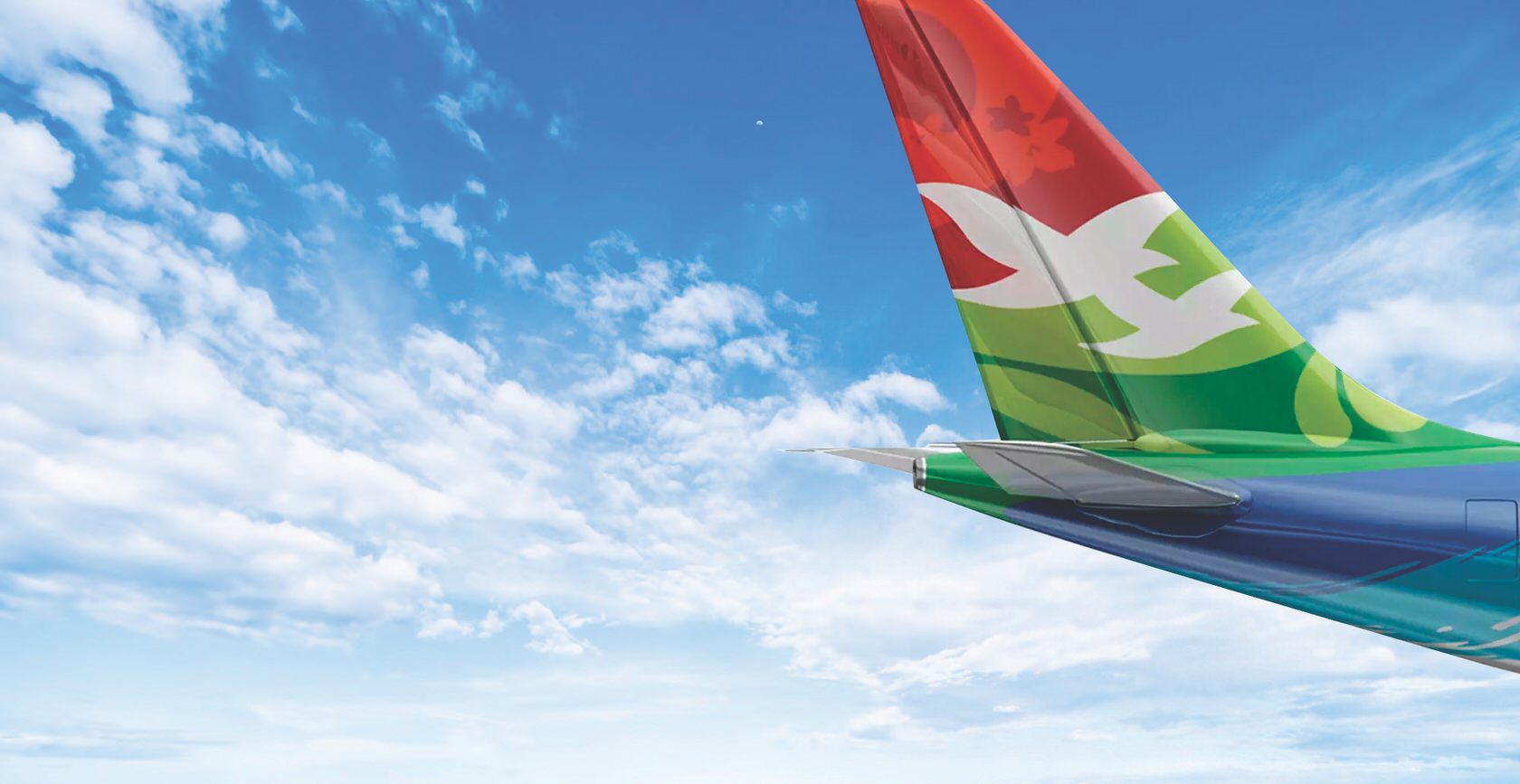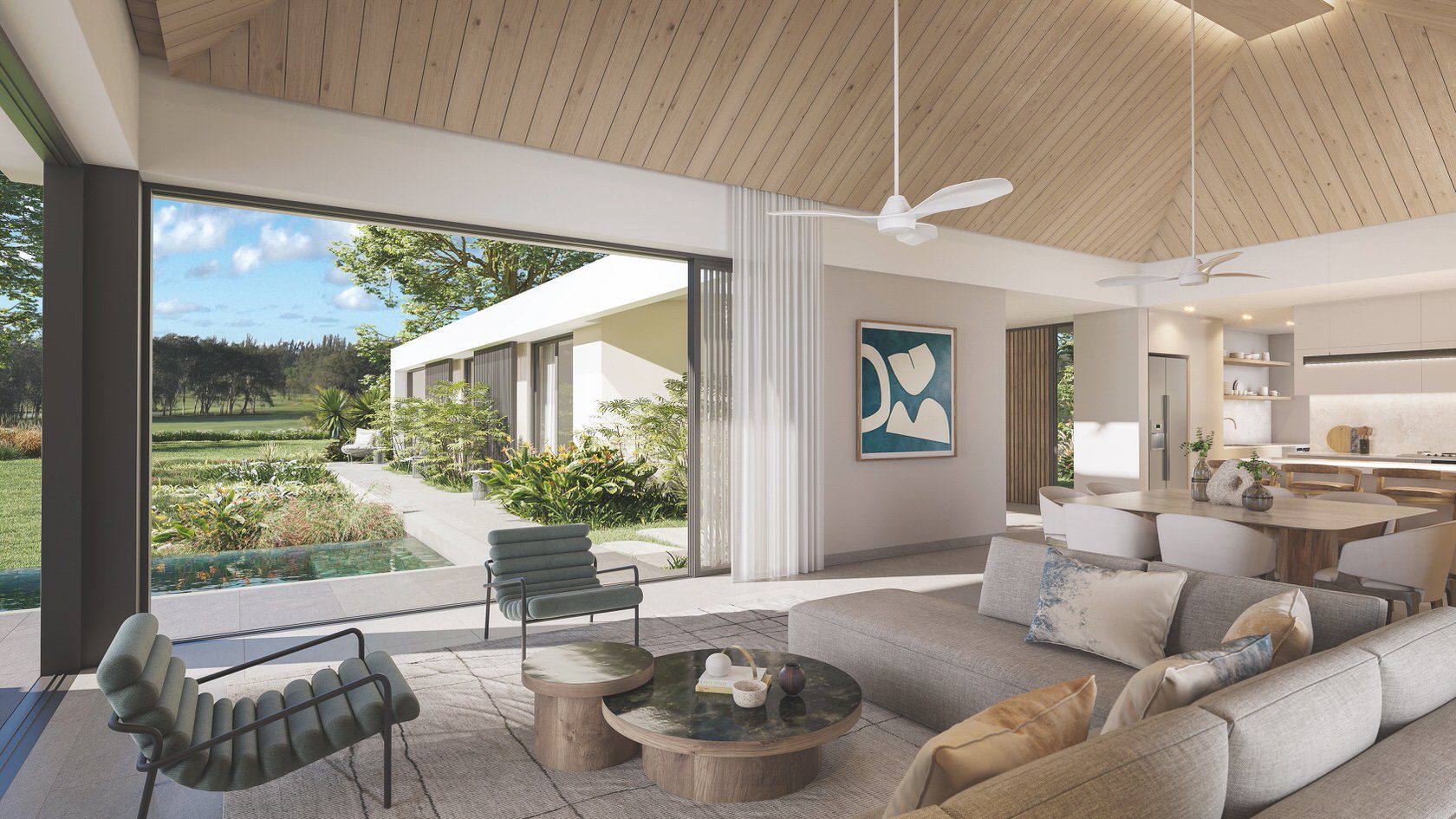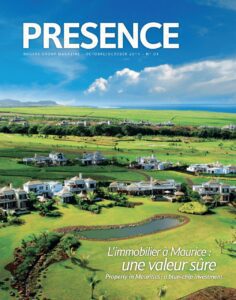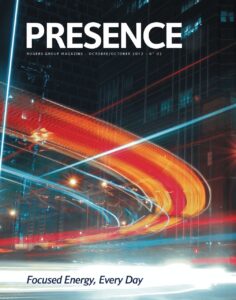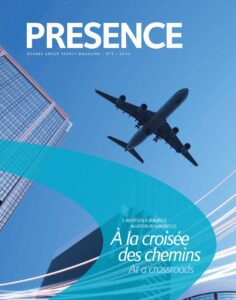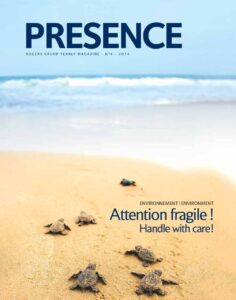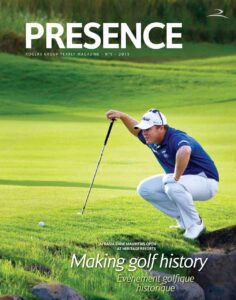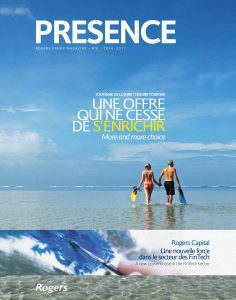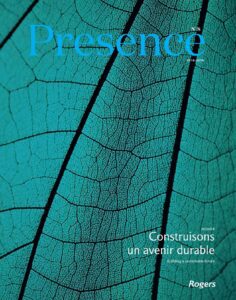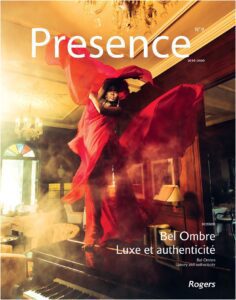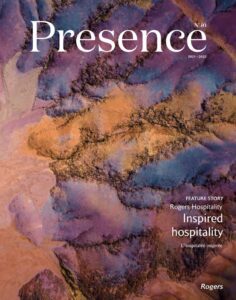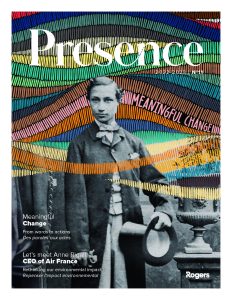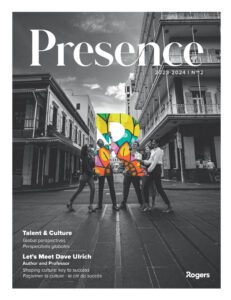Philippe Espitalier-Noël is the Chief Executive Officer of Rogers, one of the largest business companies in Mauritius. The Group has been blazing a pioneering trail for 110 years and currently employs 4,000 people in 52 different sites in 12 countries, and has an annual turnover of € 300 million. Given its scale, it has a significant impact, both now and in building for the future, on a country that is best known nowadays as a quality tourist destination. The strong impression it creates in the minds of those who visit – and those thinking of visiting – is, he reckons, a powerful driver for this small island country of some 772 square miles, with its 1.3 million inhabitants, culturally linked to ancestors who came first from Western Europe, and then from Africa and Madagascar, India and Southwest China.
The historic and continuing relations that Mauritius has with these countries means that visitors are easily reminded of the times when it was, as the saying goes, “The star and key of the Indian Ocean”, a necessary and strategic staging post on the spice, gold and silk routes between East and West. From the times of the East India companies until the opening of the Suez Canal, the country prospered from its important position on the main trading routes.
Like many of his fellow-countrymen, Philippe Espitalier-Noel has no doubt that his country’s future lies in renewing with this glorious history. Mauritius can and should regain its strategic position at a time when there is growing commercial exchange between the three areas where its roots lie: the African continent, rich in natural resources and looking for sustainable investment; Southeast Asia, dynamic and rich in human capital; and the West, rich in knowhow and looking for new opportunities.
It is from this sociological, historical and geopolitical perspective that Rogers’ CEO is orienting the direction being taken by the various companies within the Group. His aim is clear, to offer to investors who install themselves in Mauritius the best services that they can expect from a country that has proved over and over again, since it gained Independence in 1968, the perspicacity of its political and business leaders in conducting a policy of development which is both pragmatic and visionary.
Philippe Espitalier-Noël, you have stated that Rogers, of which you are the CEO, seeks to make Mauritian expertise known internationally through various means, including PRESENCE magazine. Perhaps you could tell us more about it?
With more than a hundred years of experience behind it, Rogers is recognised as a pioneer and a leader in business affairs in Mauritius. We have always been a group engaged in a range of activities, with particular specialities such as aviation. Rogers was associated in the founding some forty years ago of the national carrier, Air Mauritius, and we remain the main private sector shareholder. We are also well known in the sector as commercial representatives in Mauritius and several countries in the region of a dozen other airlines: Air France, South African Airways, Kenya Airways, Malaysian Airlines, Jet Airways (India), Saudi Arabian Airlines, Olympic Airlines (Greece), Air Link (South Africa), Delta Airlines Cargo (United States), Gulf Air, Air Madagascar and Air Seychelles. Rogers’ strength also lies in having been the company to have invested in the tourism sector in Mauritius and since in other tourism destinations, mainly through the Veranda, Heritage and Beachcomber groups.
We have also been involved historically in the property sector, nowadays through our Foresite and Ascencia subsidiaries, and also from way back in logistics, with activities throughout the logistics chain, grouped a few years ago under our Velogic label. We are participating in what we do in the opening up of the country and in welcoming investors. To extend and grow these activities, we are strategically involved in the country’s most recently developed activity : the financial sector. Our financial activities are grouped under the CIM label. We also work with major companies in the management of their outsourced customer relations services. With 52 offices in 12 countries at present, and others that will open soon, we are firmly committed to the services sector on an international scale. This is evidenced by the fact that half of our turnover, currently standing at €300 million, nowadays comes from activities outside Mauritius. Our aim is to extend further in order to become a major player in the business world in the Indian Ocean region, which includes ours and our neighbouring islands, but which also goes as far as South and East Africa to one side, and India and Asia to the other. PRESENCE is a means of promoting our expertise to our clients, a way of giving visibility to our full range of business solutions. We want to make them fully aware of what we are and what we offer. This way all of our partners will be able to have an idea of the full range of services available to them. That also applies, of course, to those investors who have yet to work with us.
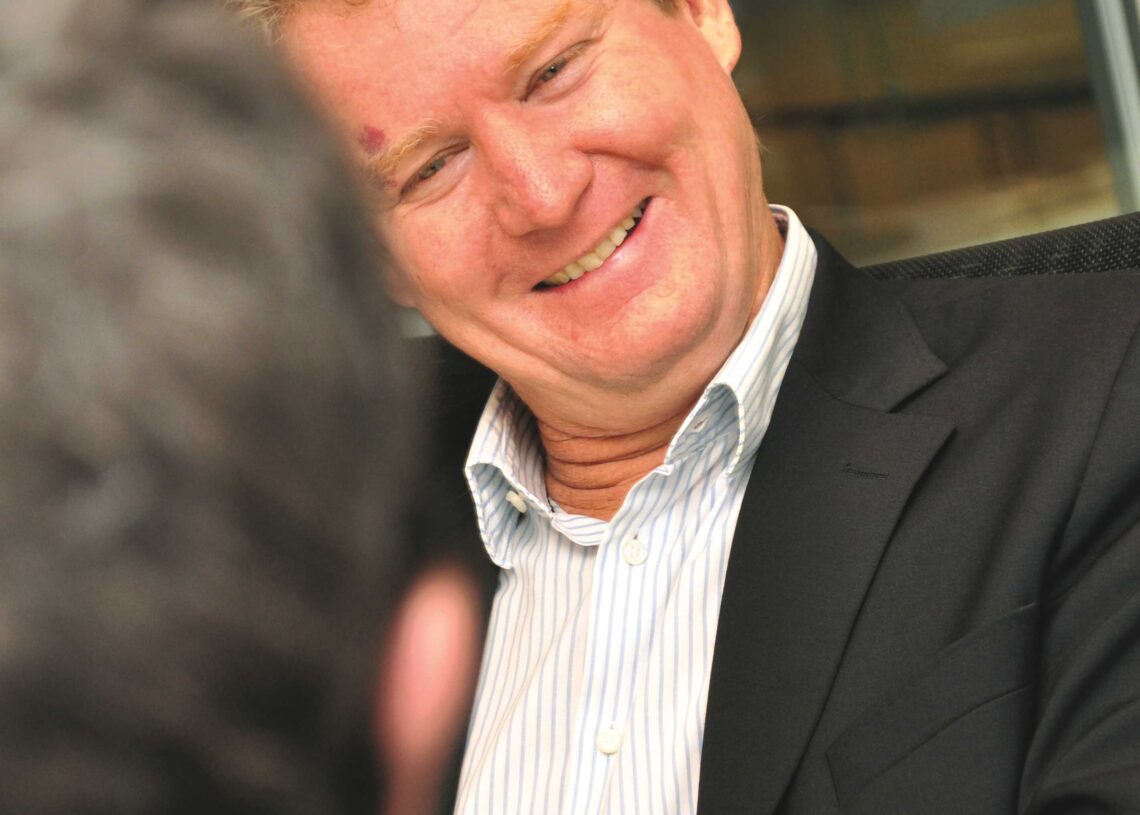
So far as investors based in Mauritius or thinking of investing here are concerned, you suggest that you offer them not only a multitude of services but the best available. More concretely, what do you mean by that?
We are working flat out to position Mauritius in ten years time so that it is able to offer a full range of top quality services. In the first place, we promote the network of dependable and privileged business relationships we enjoy, mainly with Europe. We also want to extend our role in the economic activity of the Indian Ocean region, as I’ve previously indicated, bearing in mind the growing interest of Asian countries for Africa and African countries for Asia. We are lined up therefore to engage in triangular activities, in developing more partnerships with both Africa and Asia. We are supported by the strong advantages our country offers. Mauritius is signatory to non-double taxation treaties with some thirty countries in the three continents I’ve mentioned. These treaties make our financial sector attractive, as does our low and advantageous tax regime. Added to that are the customs agreements with most of the countries in eastern and southern Africa, with whom we are moving towards an integrated customs regime. And, as I have mentioned on previous occasions, we are signatories to economic partnership agreements with the European Union and bilateral agreements with two other countries with which we have ancestral links, India and China. Against this background, we have chosen at Rogers to focus uniquely on the professional sectors which are central to our future. We have organised ourselves, therefore, to be a one-stop-shop. For example, on our offshore business platform, we have brought together administration services for companies and holding companies, and equity and fund management, as well as all the products available through our insurance portfolio. We offer our financial services’ clients support through our logistics structure and vice-versa. We also invite them to use our call centres for their customer relations services and a whole range of services to assist their businessto- business and business-to-company transactions. The range of our services means we can be involved in depth and in all aspects of business transactions, from legal advice right through to helping with the operational structure. Another example is the logistics sector, where we handle freight, transit and customs clearance, but we also provide support to major overseas companies. In partnership with a Singapore company, we will be able to charter ships, renewing with one of our first professional areas, marine transport. To those clients who entrust us with the transport of their goods, we also propose using our ticketing services that we are developing as airlines general sales agents. Thus a large Australian mining company, which has set up in Africa and which we provided with logistics support, now uses our aviation services for their staff travel. In linking up ticket issuing with our telephone and information platforms, we are now able to make travel arrangements anywhere in the world. We started with Mauritius and nowadays our Blue Sky label is also to be found in Reunion. It will also operate elsewhere in the future, firstly in the region’s francophone countries and the others as soon as possible thereafter. With communication tools advancing at a phenomenal rate and the competitive advantage we have from our close working relationships with companies in Europe, Asia and Africa, we can now arrange direct sales of our tourism products. This will also help us to promote our other investments, such as those we are involved in at the Domaine de Bel Ombre.
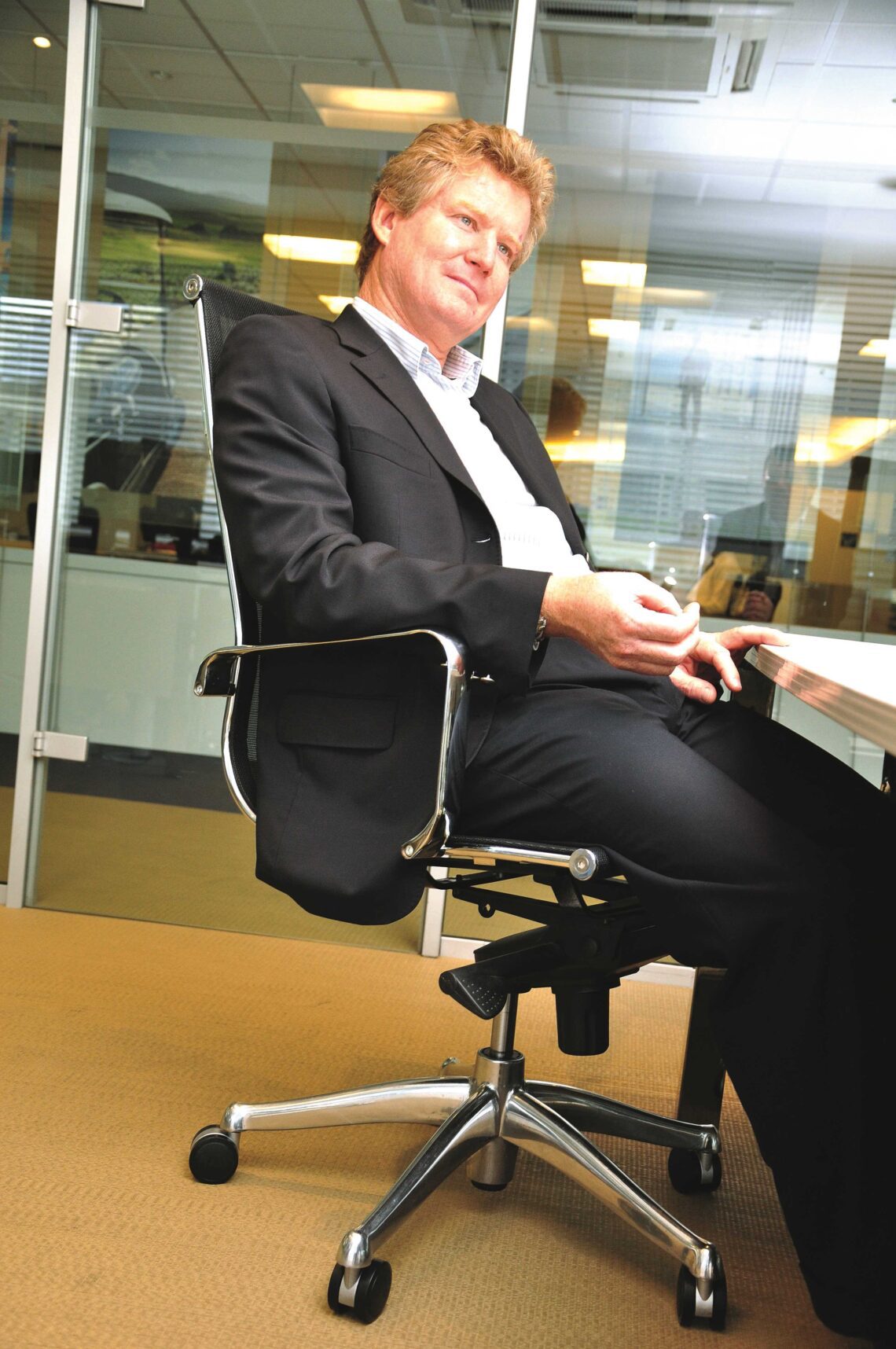
The management of the activities of the Domaine de Bel Ombre is being taken over by Jean-Luc Naret, the former CEO of the Michelin Guides. What led you to choose him?
Like all tourist destinations, Mauritius constantly needs to innovate and acquire increased visibility. Jean-Luc Naret is a professional who knows, having been actively involved in developing and launching it, all about the concept of quality attached to Mauritius as a tourism destination. His career has since given him a unique network of contacts in top-end tourism and the world of luxury. Given the current competition, it is an opportunity for the country, as well as for Rogers, to benefit from what he can offer. The decision is very much in line with the emergence of Bel Ombre as a top-quality destination. The estate is nearing the end of its first stage of development. It now has two five-star hotels and 130 luxury villas, a golf course to international competition standards, two spas, 11 restaurants, a beach club and a nature reserve, all integrated within a 3,700-acre conservation area between the mountains and the lagoon in the Southwest of the island. It is a wellrounded project. We’ll pause a bit to consider further developments, such as the construction of additional villas and other accommodation which will be able to give the site further added interest. Meanwhile, we want to promote this as the destination in the holiday destination that is Mauritius, and not only as a place to come on holiday but also as a professional base for investors who choose to live there, or to stay there, to meet with their partners and settle their business affairs in a setting that is peaceful, luxurious and absolutely delightful. Bel Ombre is the perfect illustration of the strategic positioning that we are promoting and that aims to combine an effective business environment and a very special quality of life, in a place where you can find both the cultures of three continents and sound investment opportunities.
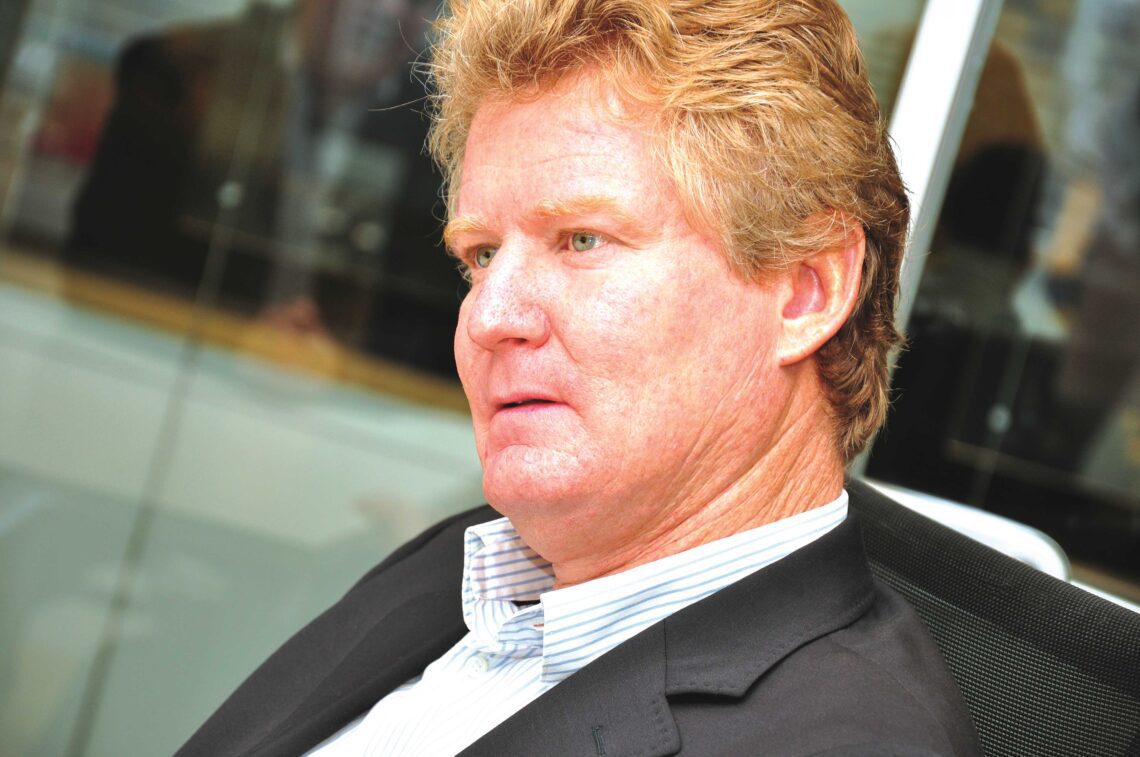
While it seems sensible to invest from a base in Mauritius, what are the opportunities for investment in Mauritius itself, and particularly in terms of property?
Donors and fund managers, wherever they come from, all outside observers in fact, are agreed in saying that property in Mauritius is a solid investment. At Rogers, we are working on showing just how true this analysis is. We are developing structures which offer investors returns that are considered very attractive. In the residential sector, like the Domaine de Bel Ombre villas, resales have already taken place and have given rise to very, very comfortable gains, which, we should remember, are not taxed. If they wish, owners for whom it is not their principal residence, can also let out their properties. As with the hotel services available to tenants, to market their property, they benefit from the five-star service provided under the Heritage label. And that’s about as good as it gets. Through our Foresite subsidiary, we also manage office and other commercial buildings. For example, we own the two commercial centres that house the two largest hypermarkets in Mauritius, managed by the regional company that is part of the Casino group, as well as the adjoining shopping galleries where some of the biggest world names are represented, such as Sony, Nike, Guess, McDonald’s, Kentucky Fried Chicken and Pizza Hut. We have floated a company that handles the financial management of these commercial property assets. Introduced at the end of 2009 onto the secondary market of the Port Louis Stock Exchange, it is valued at €50 million. The company in question, named Ascencia, has seen its shares rise 30% since the issue date and we have already distributed dividends that have exceeded our forecasts by 20%. We have been pioneers in this respect in Mauritius. It forms part of our involvement in sustainable development in the same way as our activities that fall under our companies’ social responsibility activities.
Over and above the competitive advantages, strategic projections and the opportunities offered by markets, do you think there are particular things that characterise economic development today and for the future in Mauritius and within the Rogers Group?
The various teams working for the Group reflect the plural nature of Mauritian society, which itself is, to a considerable degree, a reflection of global diversity. I am very proud to be both Mauritian and a citizen of the world at the same time. I like to be able to meet up again with clients and friends abroad, share their lifestyle for a moment, and return to Mauritius where we have the fortune to live in a democracy with an environment propitious to freedom of thought. I feel that Mauritius has many talented people and all the time I appreciate the fact that most families realise the importance of their children’s education and the development of the individual, indeed from a very early age. We can only regret that after that there is not a stronger training culture.
I feel that a characteristic of our business companies is the ability of the various individuals to recognise each other’s worth. As individuals, we may not always be the best, but we all share a sprit of integrity in our work together. Our partnerships are based on mutual trust - we won’t enter into a partnership without that. Finally, and on a very personal note, I always hope that people dealing with our teams then want to come and live and conduct business in Mauritius or the region.

